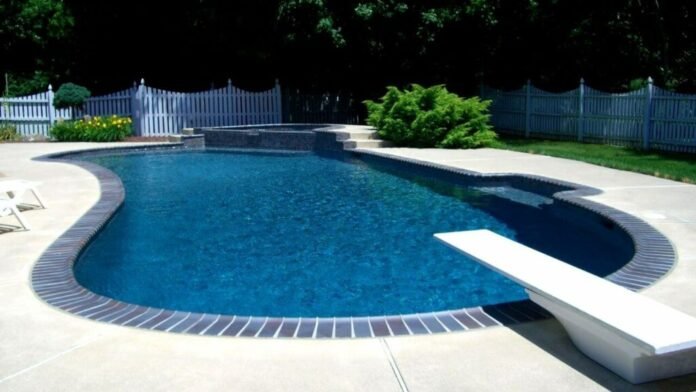When it comes to swimming pools, homeowners are faced with a variety of options to choose from. One of the most common debates is whether to go with a concrete or gunite pool. While both options offer their own unique benefits, it can be difficult to understand the difference between the two. Concrete and gunite pools are both popular choices for their durability and longevity, but they are constructed differently and have distinct characteristics that set them apart. In this blog post, we will explore the key differences between concrete and gunite pools to help you make an informed decision on which pool is right for you. We will discuss the construction process of both types of pools, their maintenance requirements, as well as the pros and cons of each. By the end of this post, you will have a better understanding of the key differences between concrete and gunite pools.
What is gunite?
Table of Contents
Gunite is a term that is commonly heard in the construction industry, especially in the context of building swimming pools or other similar structures. However, not many people are aware of what it actually means. Gunite is essentially a type of concrete that is applied using a unique method of spraying rather than being poured or troweled. This method of application allows for greater flexibility and precision in constructing complex shapes and designs. Gunite is made up of a mixture of cement, sand, and water, which is then mixed with compressed air and sprayed onto a surface using a gun-like apparatus. This process creates a highly durable and long-lasting material that is resistant to water, weather, and other environmental factors.
What is concrete, anyway?
Concrete is the most widely used construction material in the world, yet many people are still unaware of what it actually is. This seemingly simple substance is responsible for the creation of countless buildings, bridges and infrastructure projects, yet its composition remains a mystery to many. In essence, concrete is a mixture of cement, aggregates (such as sand, gravel or crushed stone) and water, but there is much more to it than that. As an artificial stone material, concrete has been in use for thousands of years, with evidence of its use dating back to ancient Rome and Egypt. Over time, the technology and science behind concrete has evolved, leading to the development of new and innovative forms of the material that can withstand extreme temperatures, resist corrosion and even heal themselves.
Concrete for swimming pools
If you are considering building a swimming pool, you have many options to choose from when it comes to the type of material for the pool. While there are several options, concrete is a popular choice due to its durability, customizability, and longevity. Concrete pools have been around for decades and continue to be a preferred choice for many homeowners and commercial property owners. In this blog post, we will explore the benefits of choosing concrete for your swimming pool and the different types of concrete you can use. Concrete pools are renowned for their durability and can withstand the test of time. They are less prone to scratches and cracks, which means the pool will retain its overall appearance for a long time. Concrete pools are also customizable and can be built in any shape or size, making them a perfect choice for those who want a unique and personalized pool. Furthermore, they can be designed to fit any landscape or backyard, making them an ideal option for homeowners who are looking to add value to their property.
Conclusion
choosing between a concrete and gunite pool can be a difficult decision. While both options offer their own unique benefits, it ultimately comes down to your personal preferences and budget. Consulting with a professional pool builder can help you make an informed decision and ensure that you end up with a pool that meets your needs and exceeds your expectations. Whether you choose a concrete or gunite pool, proper maintenance and care can help ensure that your investment lasts for years to come.


